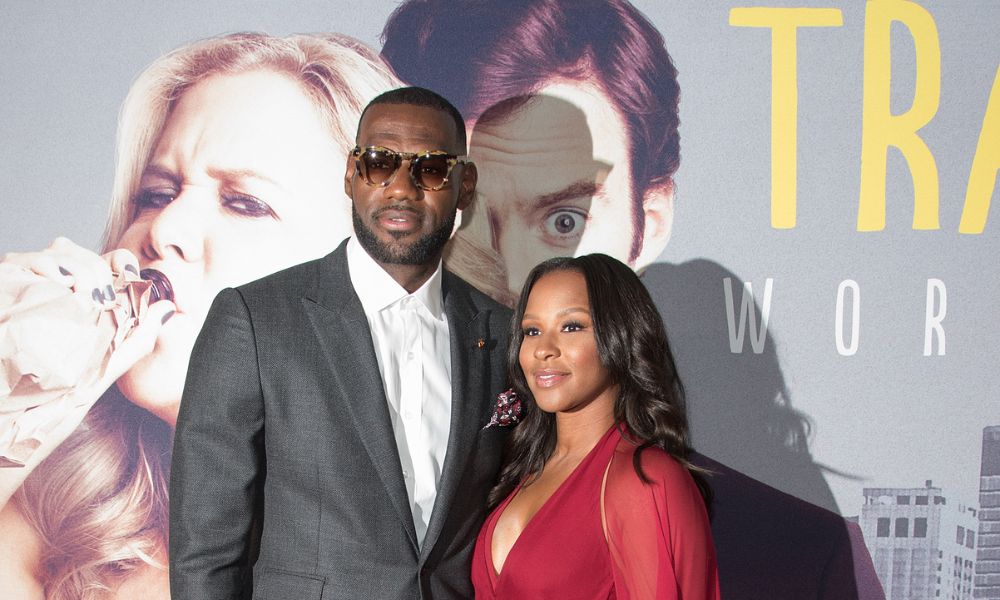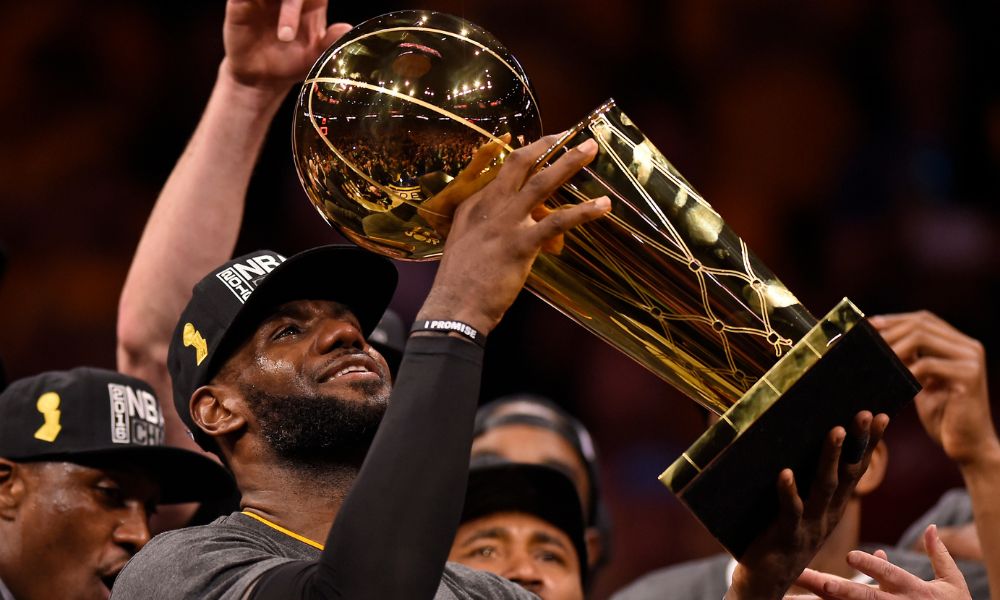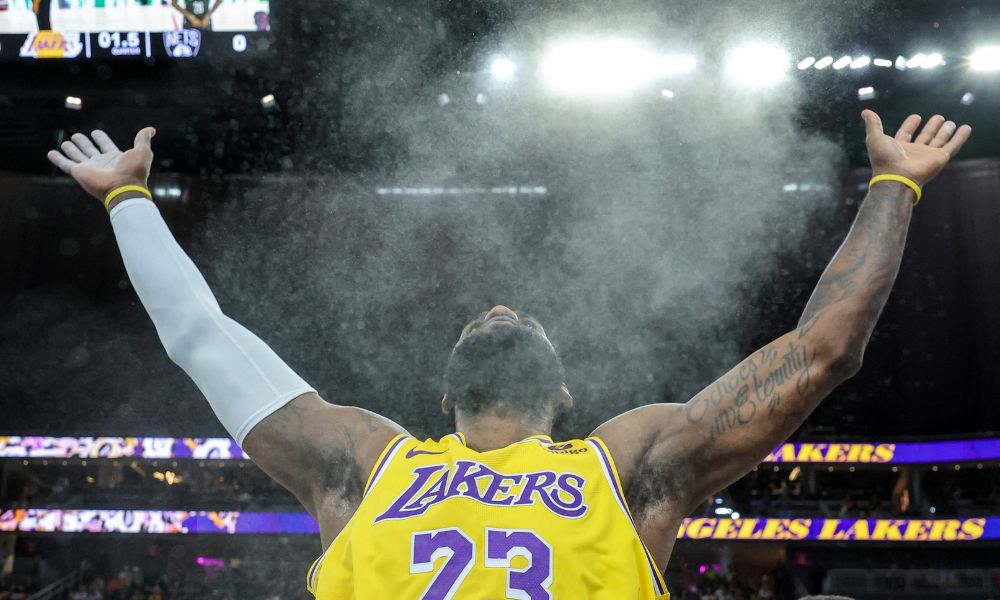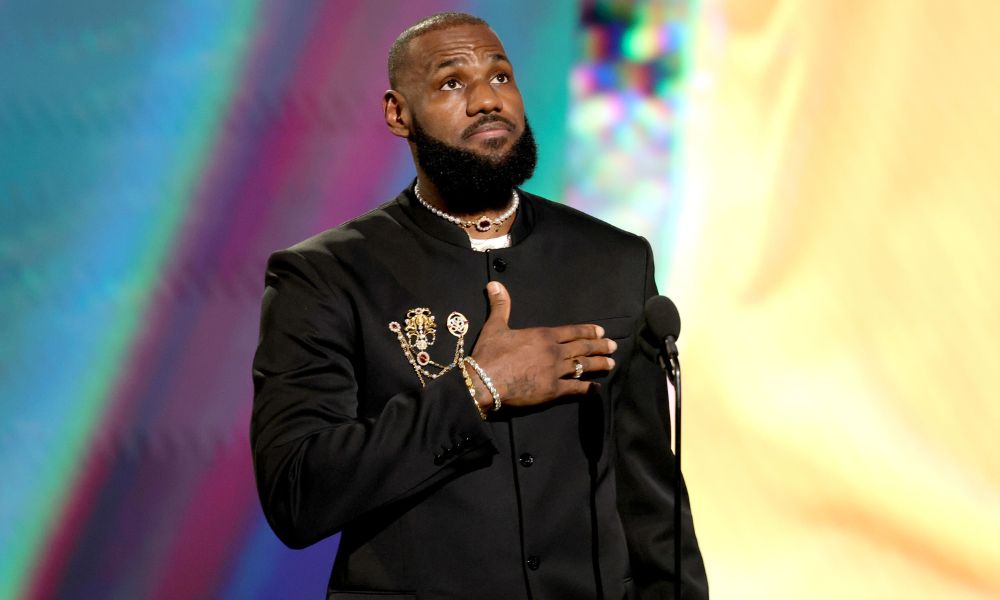Ever since Michael Jordan first retired from the National Basketball Association (NBA) in 1998, several players have been anointed his successor as the face of the sport.
Some recipients of this poisoned chalice have faded into obscurity, others had illustrious careers without ever threatening to surpass the Chicago Bulls icon, and a select few have managed to live up to the billing.
LeBron James, who ranks second in this year’s list of the world’s 50 Most Marketable Athletes, can count himself among that final cohort. He has won multiple NBA championships, including with his hometown Cleveland Cavaliers, been named MVP on multiple occasions, and holds numerous league records.
Not only that, but he has managed to meet seemingly unachievable expectations whilst being under intense media scrutiny from an early age. He was a high school basketball sensation, drafted with the first overall pick by the Cleveland Cavaliers in 2003, and his career has largely played out in an era of blanket coverage and social media.
Transcending his sport
While the debate over who is the greatest player of all time will rage on, perhaps in perpetuity, the fact that many now talk about which prospects will be the ‘next LeBron’ rather than the ‘next Jordan’ illustrates just how much he has achieved in his career to date. Indeed, when Warner Bros decided to create a sequel to Space Jam in 2015 there was only one choice of who should succeed Michael Jordan as the central figure – LeBron James.
Not only did the future hall of famer play a starring role in Space Jam 2: A New Legacy, he was listed as a producer. Meanwhile, one of the production firms behind the film was The SpringHill Company – an entertainment development venture co-founded by James and his business partner Maverick Carter in 2020.
That an athlete who has grown up in the public eye should be so media-savvy is unsurprising, and the creation of the SpringHill Company, named after the housing estate that James grew up on in Akron, Ohio, cemented his position as one of sport’s great athlete media personalities.
His first exposure to the world of entertainment was the 2008 documentary ‘More than a Game’, which documented James’s high school basketball career. James and Carter served as executive producers, forming SpringHill Entertainment in the process. The production company would go on to establish a vast portfolio of television shows and movies, while James himself would appear on NBC’s Saturday Night Live and test out his acting skills on HBO’s Entourage and the 2015 film Trainwreck.

The Decision
But James’s eagerness to harness the power of the media in his early career hasn’t always gone to plan. Back in 2010, James was the hottest free agent in the history of professional basketball. His hometown Cavaliers had hoped to re-sign James, who was being courted by a host of other teams.
Amid rampant speculation, James decided to reveal which team he would play for during an infamous one-hour special called ‘The Decision’ on ESPN. The Disney-owned broadcaster granted James a primetime slot in exchange for the rights to break the story, with James and his team able to sell advertising around the show, with the proceeds going to charity.
It was a remarkably innovative experiment that ultimately backfired. James didn’t reveal his ‘decision’ to play for the Miami Heat until halfway through the special, and the line “I’m taking my talents to South Beach” became immortalised in sporting history for the wrong reasons. Cleveland fans, who would have been upset regardless of how James’ departure was announced, were incensed by the high-profile disclosure.
James had controlled the narrative, raised US$3 million for charitable causes, but suffered serious reputational damage.
Perhaps the backlash was best epitomised by Cavaliers owner Dan Gilbert’s open letter, written in Comic Sans font, declaring James a traitor and vowing his team would win an NBA championship before James did.

Uninterrupted success
Contrary to Gilbert’s promise, James won two NBA titles with Miami before re-signing with the Cavaliers in 2014 – winning the city’s first ever championship in 2016. He announced his return to Ohio in a more modest fashion, through an open letter in Sports Illustrated. That letter would set the wheels in motion for a new enterprise.
“He just wanted to really be able to get his feelings and thoughts out without being peppered with a thousand questions about why he was doing what he was doing,” Carter told SportsPro in 2019. “He just wanted to express it and get it out once and for all.
“Literally, based off that letter we decided that there was no place for athletes to really express themselves in this way.”
The two created ‘Uninterrupted’, the name referencing James’ 2014 essay, to provide athletes ranging from NFL tight-end Rob Gronkowski to UFC champion and future WWE Superstar Ronda Rousey with a way to directly address fans. By February 20215, Uninterrupted had received US$15.8 million in funding from Warner Bros and Turner Sports to develop a fully fledged multimedia offering.
The most high-profile project was The Shop, a talk show featuring James and Carter set in a fictional barbershop. Now in its fifth season on YouTube, The Shop features guests from the worlds of sport and entertainment, noted for its candid and revelatory conversations about occasionally difficult subjects.
Social impact
The reputational damage incurred by ‘The Decision’ was slowly being repaired – first by James’ fairytale return to the Cavaliers and then by his move to the Los Angeles Lakers, arguably the most iconic franchise in the NBA, where a fourth championship ring beckoned.
Meanwhile, James’s standing in the wider world of entertainment grew ever greater. In 2020, Carter and James combined SpringHill Entertainment, Uninterrupted, and the Robot Company, a marketing agency and consultancy firm formed by the two with Paul Rivera, into SpringHill Company.
Fresh with US$100 million in funding and with tennis legend Serena Williams on its board, SpringHill Company promised to give unrepresented creators a voice and to produce content that served otherwise neglected audiences.
While there was no reluctance to create content involving James, the desire was to be viewed as a serious production company rather than just as a vehicle for material involving the NBA star. Nor did it always want sport to be the focus of everything it did.

Importantly, SpringHill Entertainment already had a slew of successes in the bag, giving it legitimacy in the media industry, and the enlarged SpringHill Company managed to secure early deals with Netflix and Disney. There was also an exclusive audio content deal with Amazon’s Audible, with the first project focusing on voter rights in the US amid concerns voter suppression and misinformation disproportionately disenfranchised communities of colour in the US.
A year after consolidation, SpringHill secured additional investment in 2021 from the likes of private equity firm RedBird, sportswear giant Nike, video game technology developer Epic Games, and Fenway Sports Group (FSG) that valued the venture at US$725m million.
If you ain't first, you're last!
— NFL on Prime Video (@NFLonPrime) October 13, 2023
Ricky Bobby is in the house!#TNFinTheShop pic.twitter.com/g4698TCnPg
Not content with being regarded as one of the greatest players of all time, James is well on the way to establishing a media empire that will sustain him long into retirement and have a real social impact. When tennis star Naomi Osaka joined the long list of athletes launching production companies in 2022, promising to focus on stories that “are culturally specific but universal to all audiences”, it was SpringHill that she chose to work with.
As a future hall of famer, James’s ability on the court meant stardom was inevitable from the moment he first set foot on an NBA court. But two decades ago, the idea of a basketball star becoming a media mogul was absurd. Jordan and others had transcended their sport, but not become major players in an entirely different industry – even less so when they were active players.
James’s fame and wealth have undeniably given him an advantage when looking to expand into the world of media, but his vision has been just as crucial. Success was not guaranteed, nor was it automatic that Hollywood would give him the time of day.
In a rapidly changing media landscape, James is once again looking to conquer everything put before him.


